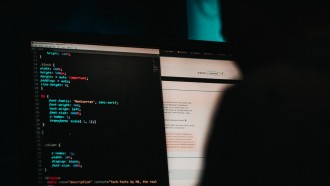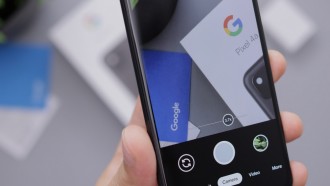
One of the main ways that identity theft occurs is when you store your information on the internet and it gets into the wrong hands. Unfortunately, this can make it easier to become a target and suffer from financial loss. If you want to protect your information online, there are a few ways to protect yourself and safeguard your financial information.
Only Use Secure Sites
One of the main ways hackers attempt to get your information is through unsecured websites where you may enter your credit card info or personal info to make a purchase. Check to confirm that the site is secure by looking for "https" in the browser before entering any sensitive information. You can also look for a website privacy policy, a verified secure seal, and contact information to verify it's a reputable site.
Utilize Data Governance
Data governance is helpful for overseeing corporate data assets and their impact as the business opportunities change. It's also effective in safeguarding consistent and accurate reporting while increasing regulatory requirements. You can have better and cleaner data to improve your analytics to ensure you're capable of making better decisions within the business. This can eventually lead to more sales and an even better reputation in the industry.
This tactic is extremely common via the phone or email. Some people even receive a text message. You should get in the habit of being cautious when you receive a message from a company or individual you don't connect with regularly.
Avoid Using Shared Wi-fi Networks
When you're spending time in coffee shops or libraries, and there's a public wi-fi network available, avoid hopping onto it, or you can put yourself at risk. Shared wi-fi networks that are public and free can invite the wrong type of person from accessing your information when you're entering in passwords or entering your bank account information. Wait until you get back home to make any purchases your pay your bills online.
Use Strong Passwords
Using stronger passwords can also reduce the risk of someone hacking your different accounts. It's also important to use a different password for each website that contains your credit card or bank information. If someone gets ahold of one of your passwords, they won't access all your accounts if you use multiple passwords. When you're creating a strong password, include multiple numbers, upper-case letters, and symbols to make it more unique and challenging to hack, according to experian.com. The passwords can also include up to five words that don't typically appear in the same sentence.
You can even have a higher level of security with the use of a password manager. Password managers are useful because they store all of your passwords for your different accounts to keep them organized and easy to remember. The technology will even assist you in creating stronger passwords when you're creating or updating your accounts.
Use Two-Factor Authentication
Using two-factor authentication is another option to add an extra layer of protection to your accounts. This will allow you to send a passcode to enter once you successfully enter your passcode to verify that you're the account holder.
It's also important to avoid opening random links and attachments or links that are sent to you from people you don't recognize, which can make it easy for hackers to access the information on your computer or device. The email may look like it's from your bank, gas company, or tax service, which can cause you to trust it. Look for any unusual email addresses or spelling errors, which are a sign it's likely a scam email. The logos used may also look crooked or pasted.
Get Extra Protection
Take advantage of anti-virus software programs that can protect your computer and will always look for anything suspicious that can threaten the security of your devices, according to nytimes.com. It's important to have a robust and updated internet security package that is always operating to ensure your computer is never vulnerable to malware attacks. Cybercriminals are always looking for new ways to installing software and can try new tactics, making it necessary to use updated software.
Create Firm Privacy Settings
Make it a point to regularly visit the privacy settings with each social media account you manage. Only allow your friends to see your posts instead of allowing everything to be public information. Keep in mind that the policies for each social media platform will change from time to time, making it necessary to stay updated to ensure your personal information is never made public. You also need to remain proactive in adjusting the settings every few months to avoid sharing your information with companies that can purchase the data or browsing history from the social media platform you're using.
Although it may be quicker and more convenient, avoid using your social media login information to log in to other websites and accounts.
Similarly, you'll also want to avoid sharing too much personal information online while connecting with your family members and friends. Many people make the mistake of posting photos of their driver's license, license plate, and even home address online, which can be viewed by the wrong person. Even posting your phone number can allow hackers to obtain a wealth of information and can threaten your safety.
Close Your Old Accounts
Shut down any old email address or social media account that you haven't used in more than a few months. All the data stored on your accounts can be easily accessed, which includes your personal photos, emails, attachments, and documents that you've sent or received in the past.
Look Out for Phishing
If you're not familiar with phishing, it can be too easy to become a victim of it. Phishing involves cybercriminals tricking you into sharing your personal information, which includes your passwords, financial details, and username. Once they get access to your computer, they install malware as a way to perform identity theft.
Wrap Up
Knowing the best ways to protect yourself online will reduce the risk of loss and make it easier to continue making purchases. You can get in the habit of becoming more cautious and make it more challenging for hackers to access your info.
* This is a contributed article and this content does not necessarily represent the views of techtimes.com





